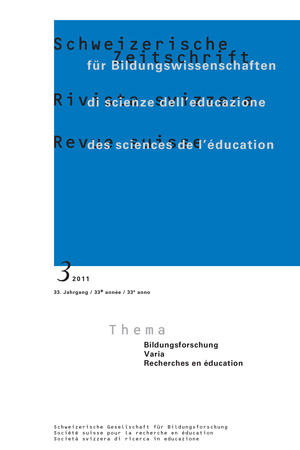Hope, self-determination and workplace learning: A multilevel study in vocational training
DOI:
https://doi.org/10.24452/sjer.33.3.4867Keywords:
Hope, self-determination, autonomy-support, work, vocational education and trainingAbstract
The present study investigates hope in the context of a 4 year vocational training. The theoretical framework combines the theory of hope with core ideas of self-determination theory. The main hypothesis predict a positive relationship between general hope and the satisfaction of basic psychological needs in the learning environment at the workplace. The analysis of cross-sectional questionnaire data from 450 trainees and 58 trainers integrate the perspectives of the trainees at the individual and group levels, as well as their trainers using multilevel modeling. The results show that a substantial amount of variation in individual hope is associated with the learning environment, and provides empirical support for the hypothesized positive relationship between hope and the satisfaction of three basic psychological needs (relatedness, autonomy and competence) in the work environment. The paper concludes by recommending the creation of autonomy-supportive work environments to facilitate the satisfaction of basic psychological needs and nurture hope.
Downloads
Downloads
Published
Issue
Section
License
Copyright (c) 2011 Christian Wandeler, Franz Baeriswyl, Richard Shavelson

This work is licensed under a Creative Commons Attribution 4.0 International License.



